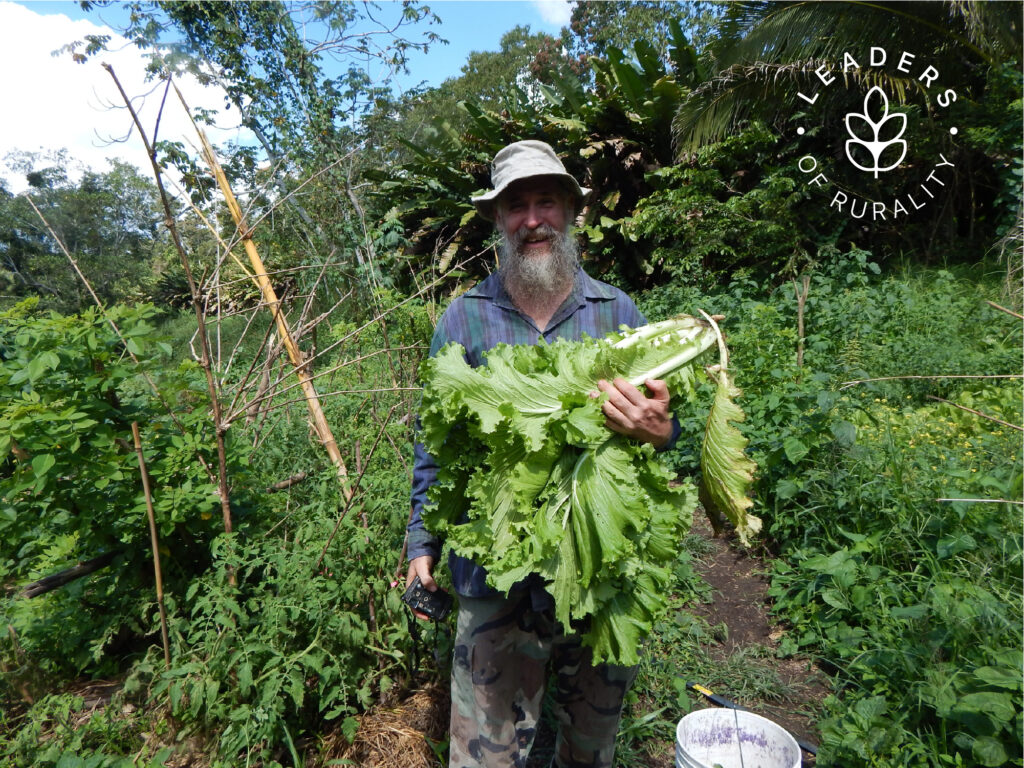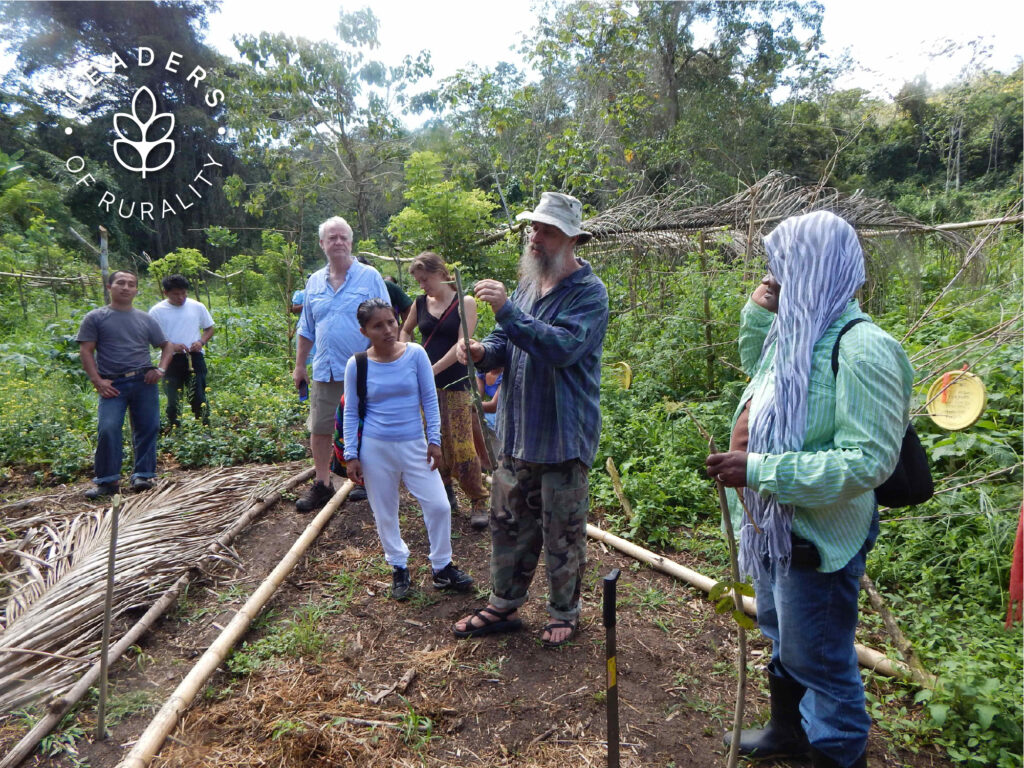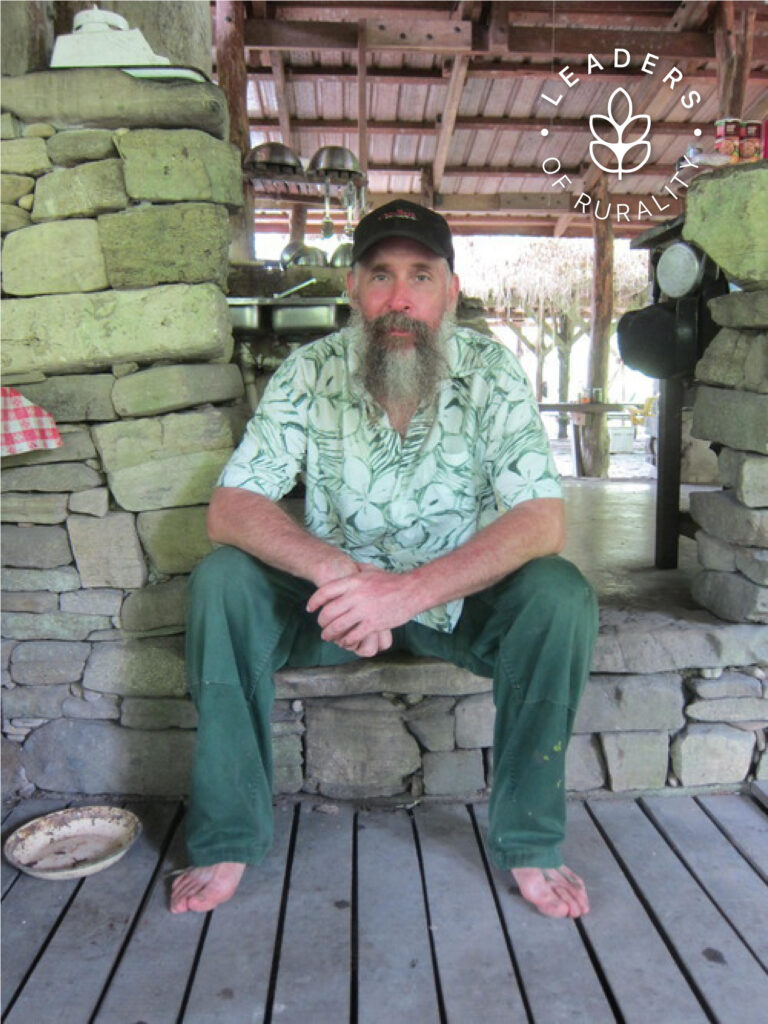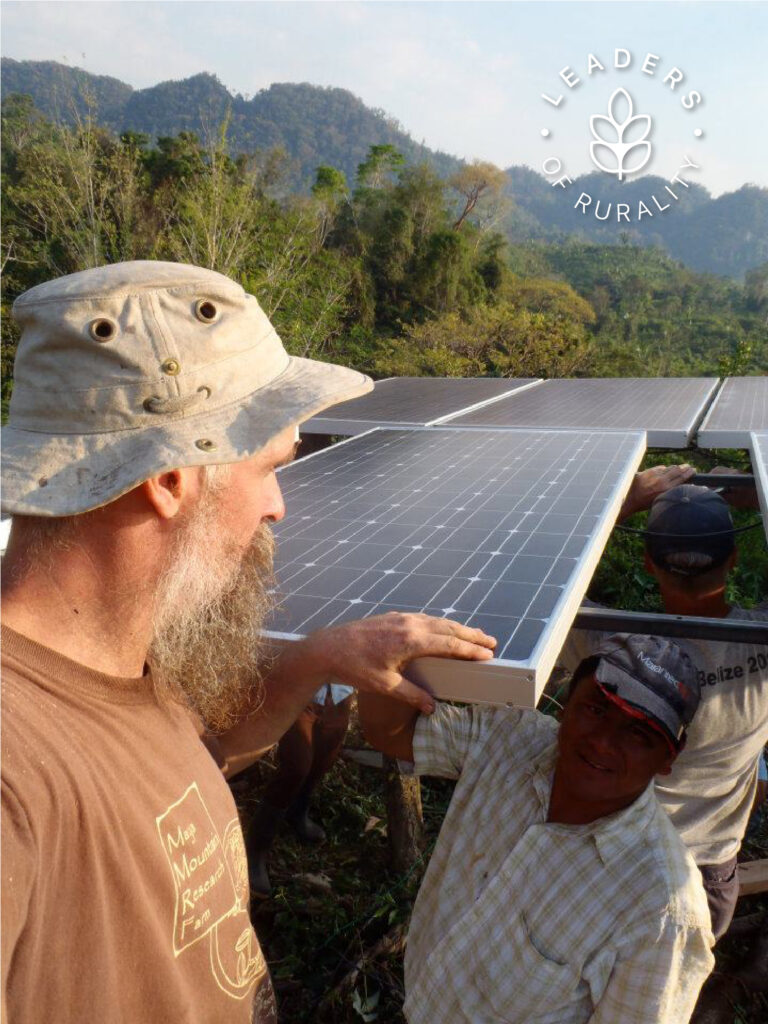
San Jose, 17 February 2025 (IICA) – Christopher Nesbitt, a farmer who 36 years ago set out to restore degraded land in Belize and developed an agro-silvopastoral system where production and environmental conservation coexist, has been honored as one of the “Leaders of Rurality” of the Americas by the Inter-American Institute for Cooperation on Agriculture (IICA).
Nesbitt will receive the “Soul of Rurality” award, part of an initiative by the specialized agency for agricultural and rural development to recognize the work of men and women who leave a lasting impact and make a difference in the countryside of the Americas – a region that is essential for global food and nutritional security and environmental sustainability.
Nesbitt, who is originally from the United States, arrived in the smallest Central American country at the age of 19. His plan was to stay for a while, but he never returned to his homeland. In Belize, he purchased an old, degraded farm of just 70 acres that had been used for citrus cultivation and cattle farming and over time he developed a system that combines forest conservation with diverse crops and livestock. His efforts have yielded significant economic and ecological benefits.
Agro-silvopastoral systems integrate forestry, agriculture, and livestock farming, keeping the soil covered to prevent erosion and help to capture carbon. Experts agree that these systems are an efficient way to increase food production, while simultaneously mitigating the effects of climate change.
His farm, the Maya Mountain Research Farm, is located in the town of San Pedro Columbia in the Toledo district, which has a predominantly Indigenous population, of Mayan descent. The farm has become a sustainability benchmark, visited by hundreds of young people and recognized by dozens of organizations for its educational value.

The farm has hundreds of plant species and native wildlife and produces food for the population of this country bordering the Caribbean coast. Additionally, it has a biogas plant that generates its own energy.
For his work, which aligns with the Sustainable Development Goals (SDGs), Nesbitt received the Commonwealth Innovation Award in 2019, as Belize is one of the nations with historical ties to the United Kingdom.
“Belize’s food security almost entirely depends on shipments of imported food. This is not sustainable, and is a problem we see throughout the Caribbean. All the islands face it, and so do we, even though we are not an island and are part of Central America,” Christopher explains.
The Leaders of Rurality award is a recognition for those who fulfill an irreplaceable dual role: ensuring food and nutritional security while also serving as guardians of the planet’s biodiversity, by producing under all manner of circumstances. The award also aims to highlight the ability to inspire positive examples for rural areas in the region.
A Home in the Tropics
At 19, Christopher was living in the United States, studying to become a history teacher in Ohio and sharing a room with a student whose parents were from Belize. That friend invited him to visit this Central American country.
“Ohio has very cold winters, and I’m allergic to the cold. I liked the idea of spending some time in Belize for the warmth. I arrived in Belize at a time when I had to decide what to do with my life, because I wanted to keep studying but needed to reassess my future,” he recalls.
When Christopher met a 65-year-old man in Belize who was selling a farm at a very low price, he decided to take the leap. “I was very young,” he says, “and I didn’t really know anything about farming, but the land was very inexpensive, so I bought it.” Since then, he has made Belize his home.
After three years of working the land without much success, Nesbitt realized what the problem was: “At that time, I spent a lot of time walking through the forest. And I understood that the best approach was to try to replicate how it worked. That’s how we started, and we’ve been doing it for a long time now.”
Over the years, alongside his family, he learned to mimic natural ecosystem processes to sequester carbon, recycle waste, maintain soil health, and retain water, while also practicing agriculture and raising animals in a tropical region with extraordinary biodiversity. He did this using the multi-strata agro-silvopastoral system, which combines different layers of trees, shrubs, and crops on the same land. Some of his crops include cacao, turmeric, and vanilla.

Today, Nesbitt is a strong advocate of this system in Belize and neighboring Guatemala. “If we work to ensure that neighboring farmers establish continuous agro-silvopastoral blocks, we can create biological corridors that reduce habitat fragmentation and promote biodiversity conservation,” he states.
“Like other countries in the region,” he adds, “Belize’s best lands have always been used for export crops, while food crops for the local population have been confined to marginal lands or very small farms. I have worked to change that alongside other farmers and with the support of cooperation agencies, which have helped optimize agricultural practices and improve smallholder farmers’ access to maize and bean markets.”
Nesbitt says that for many people in Belize, food security means having jobs in tourism that allow them to earn enough money to buy imported food at supermarkets.
“That is not sustainable, and it’s the reason why our food security in Belize is so fragile,” he insists. “The younger generations often do not want to go into farming, and those who remain in the countryside are aging. This is a problem we see throughout the Caribbean.”
Nesbitt firmly believes that agro-silvopastoral systems will attract young people to agriculture, which can generate income while providing ecosystem services. “The key is for small farmers to grow products that are in high demand,” he reveals.
Additionally, Nesbitt is a strong advocate for farmers, explaining that, “There is a perception that farmers are uneducated because some may struggle with reading and writing, but they have extensive botanical and ecological knowledge. They can observe a tree’s canopy size and leaf color and extract a wealth of information about what’s happening in the soil.”
As a passionate farmer, he is convinced that agriculture plays a fundamental role in environmental conservation: “My advice to young people in rural areas is to plant trees—plant as many trees as they can.”
“The question,” he concludes, “is how we leave our children with a better place than we found. Caring for ecosystems means caring for future generations. And I firmly believe that agro-silvopastoral systems can solve many problems related to food security, rural poverty, and migration from the countryside to cities.”












